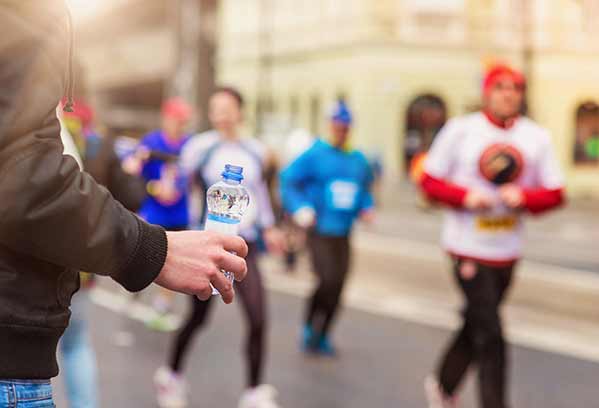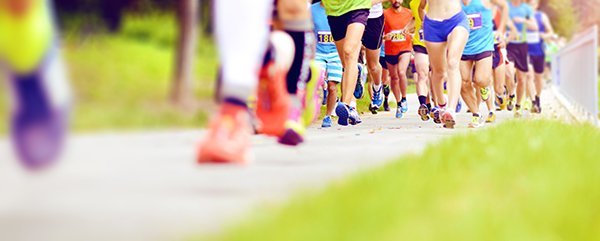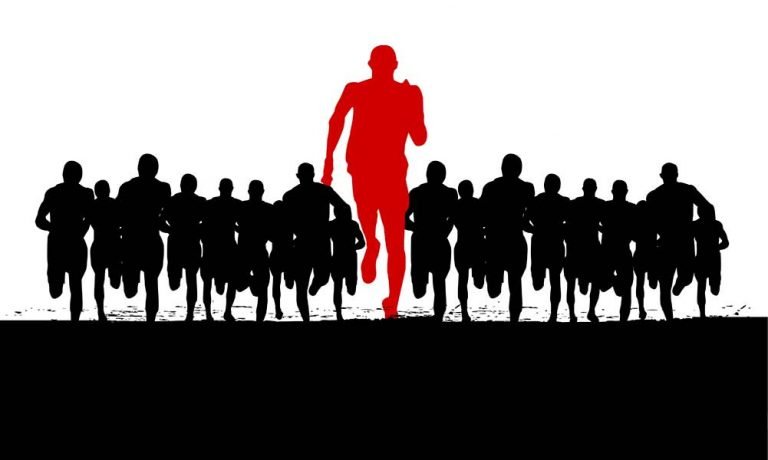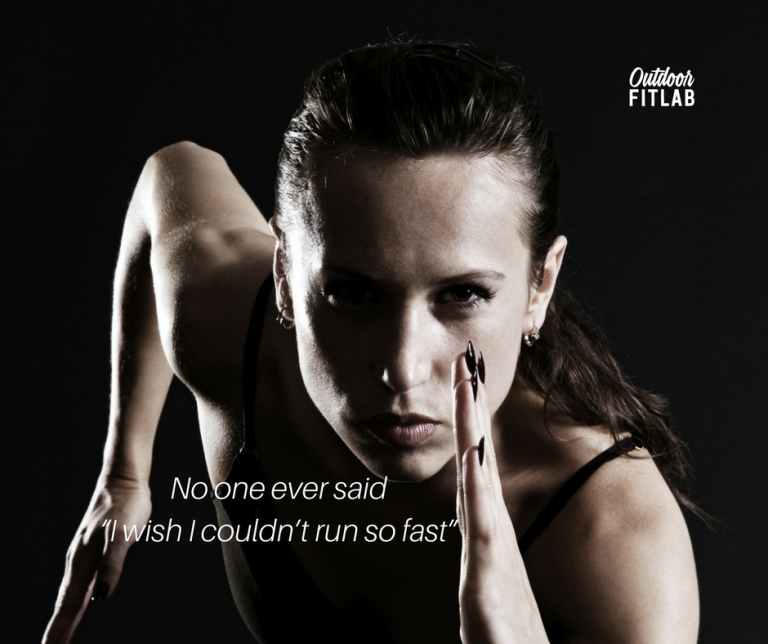How Much Does a Runner Need Hydration? What Does Dehydration Do to You?
Drink, drink, drink lots of water! Everyone knows to drink lots of fluids to avoid dehydration.
But what does dehydration do to you? And what does over-drinking do to your body?
You could say that dehydration is like a car running out of its coolant.
The task of coolant is to cool the engine. The coolant binds the heat and drives it away. If the level of the coolant gets too low, the engine overheats and eventually stops working.
Same might happen to you, or to your muscles.

Human cooling system involves blood circulation and sweating. Extra heat from muscles moves into the blood (there are many blood vessels around the muscles). The blood carries heat to the surface veins (on the surface of the skin), from where heat evaporates.
Some excess heat is destroyed by sweating.
Sweat is our coolant.
Due to sweating, the body’s coolant is reduced. If fluid is lost and you are not getting more, the heat transfer capacity will eventually deteriorate and body temperature will begin to rise.
Overheating first affects the muscles. Muscle performance falls and it creates cramps.
A sense of thirst warns you of dehydration. If you don’t drink enough, you get dehydrated.
Common signs of dehydration:
- headache
- dizziness
- tiredness
- dry lips and mouth
And when we are dehydrated, our kidneys, which are basically sophisticated trash collectors, tell the body to preserve water. So we have less water in our urine, which causes it to become more concentrated and darker in color.
How do you prepare for a run on a hot day?
It is said, that if you run for less than an hour, you don’t have to worry about drinking. Basically, you should drink water only when you feel thirsty.
If you move for more than an hour, run a marathon or do another long sport performance (cycling, mountain biking), the general rule is to take in between 4 and 6 ounces (1-2 deciliters, or an amount of a small cup of coffee) every 15 to 20 minutes.
In over one hour of running, it may be beneficial to enjoy sugar or salt drinks, but it may equally be diluted with berry juice. Sports drinks are not always essential.
The salts and sugars in the drink increase water absorption. In addition, sugar gets a little extra energy, which is beneficial for your body. Everyone needs to test what is best for themselves.
Traditionally you are advised to drink before you are thirsty, but it is not needed for a healthy person. The idea comes from top athletes.
It has been reported that human performance slowly begins to decline when the liquid drainage is two percent.
However, the feeling of thirst does not wake up until a little later, when the volume decline is about three percent. In theory, it is true that the feel of thirst comes too late.
Don’t worry, this does not apply to all, as not everyone exercises as much as a top athlete.
It’s partly a fashion phenomenon that everyone is carrying a water bottle with them, and continuously sipping water.
Top athletes are on their own. They have been investigating hydration levels to keep performance safe all the time.
So what is the right amount for you?
There’s a great barometer to help you find out the right amount of drinking water: thirst. Many experts now suggest runners to drink only when they are thirsty – not as a method to prevent dehydration.
“The feeling of thirst will tell you when to drink”
If you are not sure whether you are drinking enough water on a run, test it out by weighing yourself. If you lose weight during your run, you have drunk too little, or if you gained weight, it means you drank too much.
Take the sweat test to know how much you should be drinking
Learn how to take a sweat rate test and ensure that you’re properly hydrated. The test is not complicated. Just weigh yourself before you run, know how much you drink and weigh yourself after.
- Plan a training run for a specified time (1 hour)
- Weigh yourself before a run
- Do not drink anything during the run
- When you come back, towel excess sweat off and weigh yourself again
- The amount of weight loss amounts to loss of water
- Each pound lost equates to 16 ounces of fluid (or each kilogram lost is equal to 1 liters of fluid)
- If you ran for 1 hour, the figure represents your hourly fluid loss
Example: before a 1 hour run, you weigh 170 lb (77 kg). After the run, you weigh 168 lb (76 kg). That means you lost 2 lbs (1 kg), equaling 32 ounces (1 liter) fluid per hour.
Your sweat rate can vary a lot according to weather. You should retest on another day with different conditions (like during hot days, humid days and hot humid days).
Knowing your sweat rate gives a frame of reference for hydrating.
Is it possible, or is it needed to always replace all fluid lost exactly? Probably not. But it is easier to minimize the risk of dehydration and fluid overload with a plan.
USA Track & Field (USATF) has new fluid-replacement guidelines for long-distance runners.
For runners in general and especially for those who run slower (marathon in more than 4 hours), USATF recommends consuming fluids lost due to sweat while racing.
So do not try to drink as much as possible, as what the understanding with many runners has been.
http://www.usatf.org/news/showRelease.asp?article=/news/releases/2003-04-19-2.xml
In addition both the ACSM (The American College of Sports Medicine) and IMMDA (The International Marathon Medical Directors Association) have guidelines that support the use of individual fluid replacement programmes.
That is, finding out your individual fluid need with a sweat test.
“The overall hydration guideline is that the amount of fluid you take should match fluid loss so as to prevent dehydration.”
Runners are normally very aware of the importance of hydration, but no one seems to talk about over hydration!
If you drink too much, it can also lead to problems.
Wait – what happens when you drink too much water?
If you drink too much, you might get a condition called hyponatremia.
Hyponatremia happens from drinking too much water during an endurance sporting event, like on a long run.
Hyponatremia means that the level of sodium in your blood gets abnormally low. Sodium is an electrolyte, and it helps regulate the amount of water that’s in and around your cells.
Basically, hyponatremia means you have too much water in your blood circulation.
“Hyponatremia is a low sodium level in your blood”
https://en.wikipedia.org/wiki/Hyponatremia
Symptoms of hyponatremia
Symptoms of hyponatremia can vary from harmless to hazardous.
In fact, the symptoms of heatstroke are very similar to hyponatremia. It’s important to differentiate these two conditions, as they are treated differently.
Common symptoms of hyponatremia include:
- nausea
- headache
- confusion
- loss of energy
- fatigue
Hyponatremia can also lead to severe consequences like faint and, at worst, fall into a coma or death.
The worst-case scenario happened at the Boston marathon a few years ago, when a runner died of hyponatremia.
This made other runners aware, and got us thinking how to avoid this problem.
Who might be affected
Hyponatremia is an issue especially for marathoners. The more they run, the more they sweat, which makes them more likely to consume too much water without taking in enough sodium.

The Boston marathon racing survey revealed that the problem was particularly affected by women and slower runners, who drank more than three liters during the race and took more than four hours to finish.
More than a tenth of the runners in the study suffered from hyponatremia. This phenomenon has also been observed in other long runs, such as army marches, soccer games, rowing and triathlon.
http://www.nejm.org/doi/full/10.1056/NEJMoa043901#t=article
Treatment
The risk of hyponatremia is not particularly high. Beware more of dehydration than hyponatremia.
Nevertheless, you should not drink constantly. It’s a good idea to have a drink at the pace of the drink points on the marathon route.
If a beginner runs the marathon very slowly, there is less heat in the body and less fluid is consumed. If you always drink a couple of cups at resting places and then drink some extra of your own drinks just in case, you may have too much fluid load.
When sweating on a hot day, also non-fitness enthusiasts should take care of hydration properly. And beware, you need to be careful with alcohol, as it drains your body.
Excess weight and several drugs may increase the symptoms of heat. These include, for example, anti-allergic drugs, beta-blockers, antidotes, and de-icing agents.
Avoid taking any drugs like aspirin, ibuprofen and naproxen (NSAIDS) before or during a race if at all possible. These drugs increase the risk for exercise-associated hyponatremia and acute kidney injury.
In the case of medicines you should consult your doctor and ask whether it has an effect on drinking.
Learning to balance the amount of water you consume, with the rate which you sweat is easier said than done.
Practice by taking small gulps of water instead of bigger ones, and pay attention to what your body is telling you. You can also take the sweat test mentioned earlier in this article.
Eating some salty snacks and drinking sport drinks that include sodium and potassium can help prevent the risk of hyponatremia.
Hyponatremia is kind of like watering your plant too much, and the excessive water does more damage than good.
Still, dehydration is a much bigger risk than hyponatremia, but it is well worth getting to know how to prevent either one from happening to you.
The problem we sometimes see it is that runners often wait far too long and then drink too much. That is a problem and it’s largely due to not being educated on how to hydrate.
Every runner can always learn something new, and when it comes to hydration, it is important to listen to your own body.
Some key points:
- Don’t wait too long to start drinking.
- Drink small amounts at a time rather than drinking a whole cup or a bottle at once.
- Drink if you are thirsty.
- Don’t force yourself to drink.
- Stop drinking if you hear or feel your stomach gurgling or sloshing. There is too much liquid in your stomach that hasn’t assimilated into your organs.
- Alternate taking water and sports drink during a long run
Common syndromes of dehydration:
- headache
- dizziness
- tiredness
- dry lips and mouth
- urine is darker in color
Common syndromes of hyponatremia:
- nausea
- headache
- confusion
- loss of energy
- fatigue
- faint, coma
You may also be interested in the article: Sparkling Water: Is It Good For Runners? Or Is It Bad?





I am always looking online for articles that
can aid me. Thanks! Drinking fluids is crucial to staying healthy!